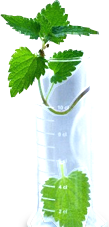



Author(s): Haris Variyathody* and Manohar M
Fish is considered to be one of the most-traded food commodities worldwide with more than half of fish exports by value originating in developing countries. In order to increase its shelf life and maintain its nutritional value, texture and flavour, food preservation becomes necessary. Fish spoilage results from three basic mechanisms: Enzymatic autolysis, oxidation, microbial growth. With advancements in nanotechnology, different metals like silver, copper, zinc etc., have been engineered into a nanometre size and have attracted great research interest for use in different food industries because of their potential antimicrobial property. Vitamins like Pyridoxine, alpha tocopherol acetate, folic acid are commonly used as a dietary supplement and therapeutic agent possessing antioxidant and cell proliferation activity. Therefore, in the present research, copper oxide nanoparticles complexed with vitamin-E (MnV-C) were synthesized, and its potential to control the oxidative damage in the cells of seafood; and the microbial spoilage in seafood is investigated. All the bacterial species were found to be sensitive to the nanometal vitamin complex. The MICs of nanometal vitamin complex ranged from 1.6mg/ml to 6.4mg/ml. Maximum inhibitory zones obtained against Bacillus cereus and Shigella sp. were 17mm and 16mm. Thus the metal nanoparticles coupled vitamins (MnV-C) was effective against the oxidative cell damage and pathogenic microbes in seafood. This technology can be used as a preservation technique; can improve the quality fish and fish products.